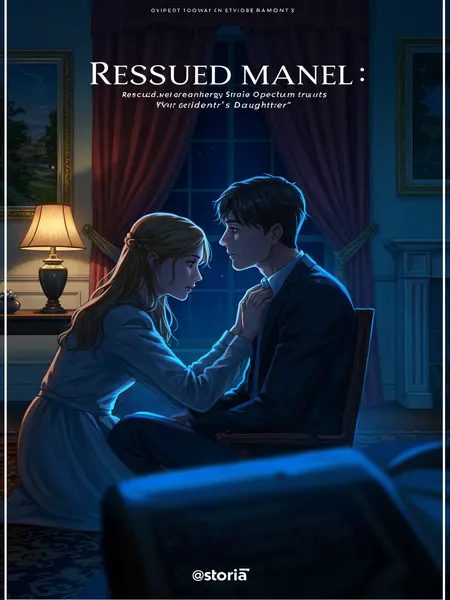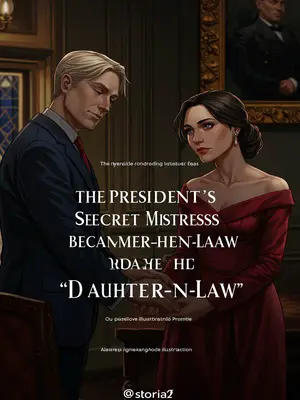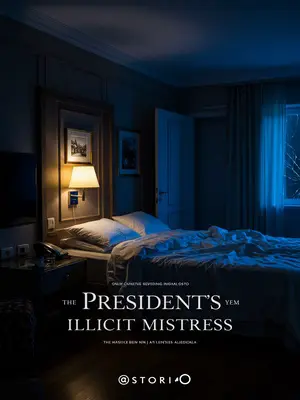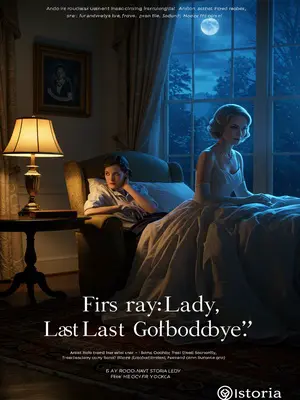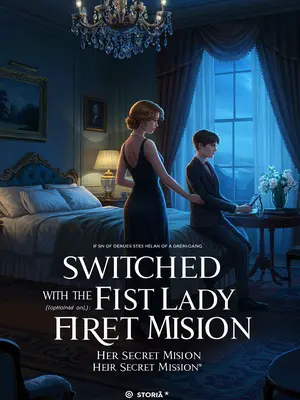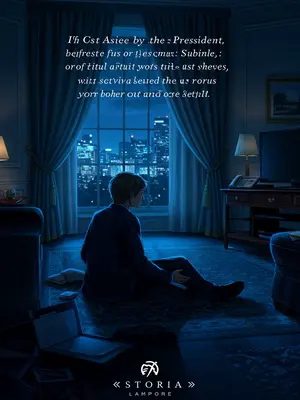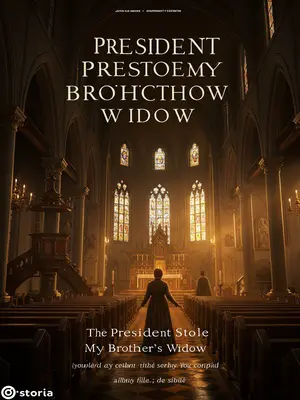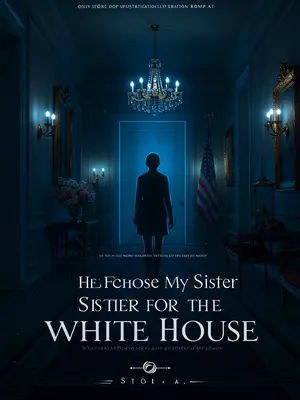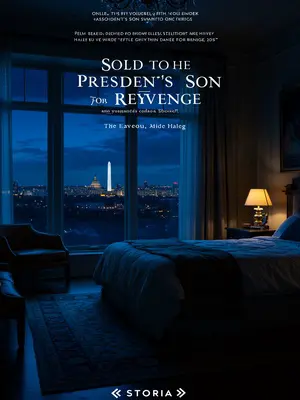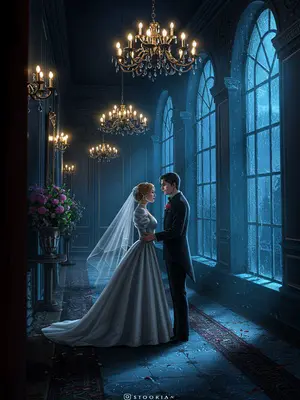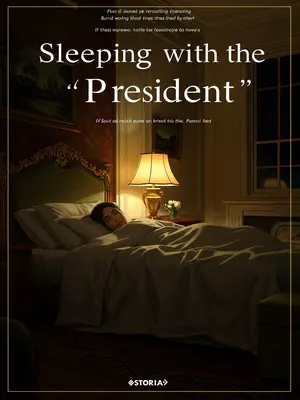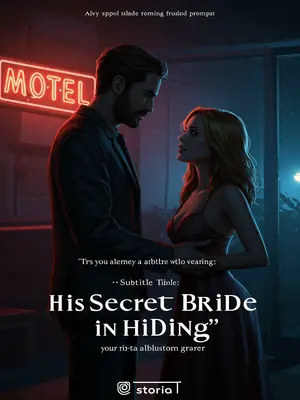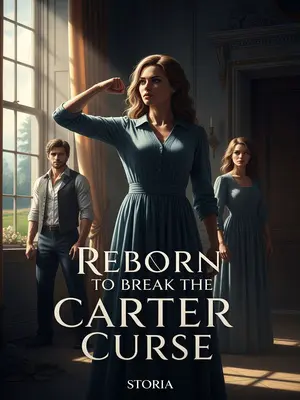Chapter 3: Under the Chandeliers—Family Games
At the state dinner, I realized Savannah had told the truth.
The East Room gleamed with gold cutlery and blue-and-white china, the chandelier blazing like summer lightning. There was prime rib on every plate, mashed potatoes drowning in gravy, and the air buzzed with the nervous clink of forks on china. Everyone's posture was perfect, but their eyes flickered, wary and sharp. It was more battlefield than celebration.
Daniel Harris truly had many adopted children. Besides the four present, there were four more stationed at embassies and military bases, plus herself, making a total of nine.
The seating chart alone was a chessboard of alliances. Eight faces eyed each other—some smiling, some barely hiding their disdain. Savannah explained each sibling with a whispered aside as we took our seats.
She whispered to me, “Dad’s never remarried, and he has no intention of having any biological kids.”
She leaned in, voice barely audible over the clink of glasses. "He's old-school—family is what you make it, not what you're born with."
So her eight siblings secretly formed factions and vied for the position of successor, while Savannah kept a low profile, only wishing for a peaceful, quiet life, and so was excluded and ignored by her siblings.
She told me about the alliances and rivalries—the whispered plotting, the uneasy truces that never lasted past dessert. Savannah, she said, kept her head down and her books close, never drawing attention, content to be invisible.
A lively state dinner in her honor had never happened before.
As we sat beneath the portrait of Lincoln, the realization settled in: tonight was different. For the first time, Savannah was at the center instead of the sidelines.
I observed in secret and found that the adopted children present were all about the same age, probably all once Daniel Harris’s trusted aides or foster children from his campaign days.
I studied them: ex-military, lawyers, analysts—each one polished, each one a reflection of the man at the top. Their laughter was measured, their glances calculated.
Each one was imposing, almost like a replica of Daniel Harris.
It struck me that even their posture matched his. That mix of confidence and cold detachment—hard to fake, easy to recognize.
Among them, there was one I seemed to have seen before.
A jolt of recognition flickered. The scar. The square jaw. It couldn't be—
That man seemed to sense my gaze and looked over at me, expressionless, from several seats away.
He held my gaze a moment, cool and unreadable. I quickly looked away, heart pounding.
The bright chandelier shone on a fierce scar on his brow.
The light made it stand out, a jagged pink ridge above his left eye. An old wound, the kind you get from battles no one talks about.
I was startled and quickly looked away.
I fumbled for my napkin, suddenly desperate to disappear into the crowd.
Back when Daniel Harris sent me off to D.C. as a hostage, Liam was so distraught he nearly lost his mind, clutching the car door and refusing to let go even as Daniel Harris tried to drag him away.
Memories rushed back—Liam's hands bruised from gripping the car, his face twisted with fury. He'd cursed Daniel Harris with every name under the sun, even as the Secret Service tried to pry him loose.
I still remember the bloodshot, hateful look in his eyes.
The rage and helplessness—they'd burned brighter than the city skyline that night.
He clung to the car window and said to me, “Miss, don’t be afraid. One day, I’ll take down that bastard and bring you home.”
His voice had cracked, but the promise in it was fierce—a lifeline I clung to in those first nights in D.C.
Then…
But after that night, nothing. Silence. I'd been left alone to disappear into the capital's shadows.
There was nothing after that.
The memory ended abruptly, like a TV show that cuts to static. No happy ending, no rescue—just emptiness.
The turmoil in my heart slowly settled.
The past was gone. All that mattered now was survival.
People’s hearts change; no one’s promise lasts forever.
It was a hard lesson, one I learned the night I stopped waiting for help that never came.
Just then, Savannah poured me a glass of wine. I took it and drank, but immediately sensed something was wrong and wanted to spit it out. Suddenly, I remembered: at these events, people love pear cider, but whenever I drank it, I would break out in red rashes and itch all night, unable to sleep.
The first sip was sweet, almost syrupy. I realized too late—pear cider. My skin prickled in warning. I'd spent too many nights scratching hives to ever forget.
Back then, my fondness for wine annoyed Daniel Harris so much that he banned all alcohol in the house, leaving me no way to indulge.
I'd once tried to sneak a drink at a Christmas party—he'd poured it out in front of everyone, cool and unbending. No exceptions.
Now, in the presence of old acquaintances, I dared not act out of place and arouse suspicion.
I swallowed hard, forcing my face into a neutral mask, praying no one noticed the panic in my eyes.
I could only force it down, praying the rash wouldn’t appear too quickly, and that I could make it through the dinner.
My throat tightened as I downed the glass, each swallow a gamble. I kept my hands hidden in my lap, willing my skin not to betray me.
But Daniel Harris truly was my calamity. He hosted the dinner himself, arrived late, and—unlike usual—lingered for a long time.
The room grew tense as he strode in—broad-shouldered, immaculate, radiating an authority that made the air feel thinner. He took his seat and, for once, stayed.
He said little, and seemed to have forgotten about announcing the marriage, sitting gloomily at the head table behind a privacy screen, his expression unreadable.
His silence felt like a warning. Eyes flicked toward him, waiting for the other shoe to drop. The privacy screen hid his face, but the mood said everything.
He didn’t leave, so no one else could either.
No one dared so much as check their phones. The meal stretched on, the room growing stuffier with every passing minute.
Savannah also felt unlucky, and quietly leaned over to tell me, “Dad is always in a bad mood after coming back from Arlington. He used to lock himself in his office and vent his anger at one person. I don’t know why it’s different today.”
She whispered, "Usually, he just holes up in the study for hours. I guess he's making us all suffer together tonight."
At whom?
I wanted to ask who that 'one person' was, but Savannah just shook her head, lips tight.
I hadn’t asked yet.
Suddenly, the doors opened, and two Secret Service agents dragged in a crippled man with shackled feet.
The whole room stiffened. Forks clattered. The man's limp was pronounced, each step scraping against the hardwood.
Gasps echoed around the table.
A ripple of shock ran through the crowd. Some stared, others looked away, pretending not to notice.
Seeing the friendship bracelet tied to the man’s thin wrist, I froze.
It was a simple piece of string, the kind kids made at summer camp. My breath caught. Only one person I knew wore a bracelet like that.
Someone whispered in shock:
“The deposed President, James Lee—is he still alive?”
The name shot through the room like a spark in dry grass. People whispered, eyes wide with fear or curiosity.
